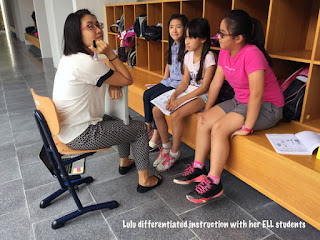Empower Digital Leaders

Technology Innovators We have many great technology innovators in our international institution. A strategy to support them requires as a preliminary step to identify who these various actors are. Some have already been identified and organized: Tech ambassadors program established leaders Tech crew program for aspiring innovators Others still need to be recognized: Admin and leadership teams Users who are not yet tech ambassadors Onboarding users who are not in the tech crew Tech Ambassadors Program We initiated a thorough review of the main axis of our strategy to support and empower the learning leaders at Kaohsiung American School: the existing KAS Tech Ambassadors program. The following document details the origins of the program from its inception to its self-determined mission. It further examines the accomplishments and challenges that have been met leading to a reflective piece by Victor on its past 3 years. Tom develops the existing foundation into a the leade





